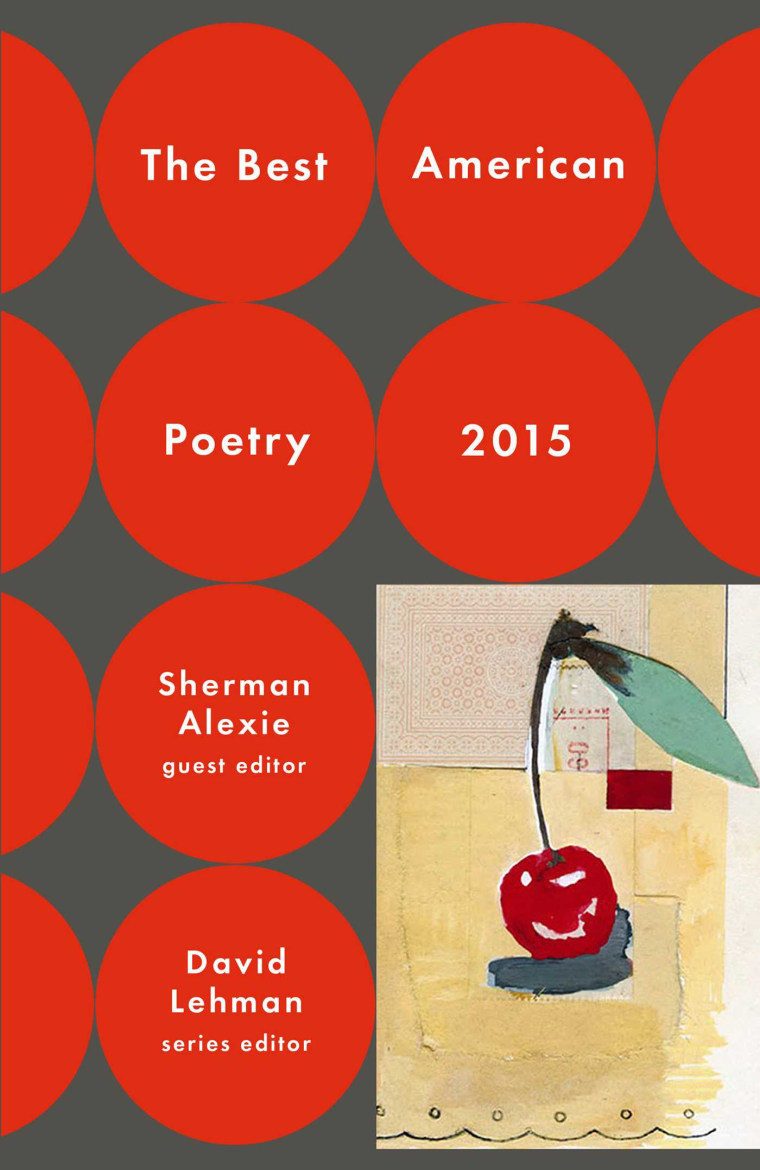The 2015 edition of The Best American Poetry is facing controversy for including a poem from “Yi-Fen Chou,” the female Asian-sounding pen name of Michael Derrick Hudson, a white male poet from Fort Wayne, Indiana.
"After a poem of mine has been rejected a multitude of times under my real name, I put Yi-Fen's name on it and send it out again,” explained Hudson in his bio about why he began using this pen name. “As a strategy for 'placing' poems this has been quite successful for me. The poem in question, 'The Bees, the Flowers, Jesus, Ancient Tigers, Poseidon, Adam and Eve,' was rejected under my real name forty (40) times before I sent it out as Yi-Fen Chou (I keep detailed submission records). As Yi-Fen the poem was rejected nine (9) times before ‘Prairie Schooner’ took it.”
The revelation of "Yi-Fen Chou's" identity has angered many Asian-American writers.
According to Timothy Yu, Professor of English and Asian American Studies and Director of the Asian American Studies Program at University of Wisconsin – Madison, the controversy not only plays into the racist tradition of yellowface and a long history of appropriation in American poetry, but it also highlights white resentment of “political correctness” and the illogic of reverse racism, when in reality, many more white males are published than anybody else.
“That’s the part that’s the most insidious, because it’s just not true that women and people of color have an easier time to publish,” Yu told NBC News. “His cynical belief is actually false. I am a Chinese American writer and I can tell him he’s wrong.”
Sherman Alexie, the Native American poet who edited the volume and kept the poem even after learning that “Yi-Fen Chou” was not Asian American, acknowledged in an essay that he had been looking to elevate more diverse voices in a kind of “literary justice,” which is why the Asian-sounding pen name drew his attention in the first place, although it was the poem itself that ultimately made him choose it.
"In rereading the poem, I still found it to be compelling. And most important, it didn't contain any overt or covert Chinese influences or identity. I hadn't been fooled by its 'Chinese-ness' because it contained nothing that I recognized as being inherently Chinese or Asian. There could very well be allusions to Chinese culture that I don't see. But there was nothing in Yi-Fen Chou's public biography about actually being Chinese," Alexie wrote. "When I first read it, I'd briefly wondered about the life story of a Chinese American poet who would be compelled to write a poem with such overt and affectionate European classical and Christian imagery, and I marveled at how interesting many of us are in our cross-cultural lives, and then I tossed the poem on the 'maybe' pile that eventually became a 'yes' pile."
In response to Alexie's decision to include Hudson's poem, Ravi Shankar, founding editor of Drunken Boat poetry journal and editor of Language for a New Century: Contemporary Poetry from the Middle East, Asia, and Beyond, said the act was insensitive. "What I find most galling is it perpetuates the myth that being Asian makes it easier to get published when in fact it is much harder (by the numbers). And this ridiculous act diminishes the lived experience someone with such a name might have," Shankar told NBC News.
Yu said he hopes this will be the starting point for more in-depth discussions. “Things are going to change when it’s not just white editors and white authors making all the decisions. And it’s going to be uncomfortable and it’s going to be awkward," he said. "And that’s what’s sad about this. Alexie made a concerted effort to include writers of color—40 percent of the authors in the anthology are people of color—and Hudson took away a seat at the table.”
